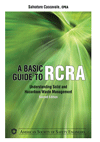First international bedroom poll
Exploring sleep differences among six countries
 The National Sleep Foundation (NSF) released in September its first international poll , the 2013 International Bedroom Poll, comparing sleep times, attitudes, habits and bedtime routines of those in the United States, Canada, Mexico, the United Kingdom, Germany and Japan between the ages of 25 and 55 years old.
The National Sleep Foundation (NSF) released in September its first international poll , the 2013 International Bedroom Poll, comparing sleep times, attitudes, habits and bedtime routines of those in the United States, Canada, Mexico, the United Kingdom, Germany and Japan between the ages of 25 and 55 years old.
Japan and the United States report the least amount of sleep.
Japanese and Americans report sleeping about 30 to 40 minutes less on workdays than those in the other countries surveyed, averaging 6 hours and 22 minutes and 6 hours and 31 minutes of sleep, respectively. Two-thirds of Japanese (66%) say they sleep less than 7 hours on work nights, compared to 53% of Americans, 39% in the United Kingdom, 36% of Germans, 30% of Canadians and 29% of Mexicans. One in five from the United States (21%), Japan (19%) and the United Kingdom (18%) report sleeping less than six hours a night during the work week, about twice the rate of the other countries (11% Mexico, 10% Germany, 7% Canada,).
Perhaps to compensate for less sleep, about one-half (51%) of both Japanese and Americans have taken at least one nap in the past two weeks. Every country reported sleeping in on weekends, with an average of an extra 45 minutes of sleep on days they do not work.
"As the first international public opinion poll on sleep, the National Sleep Foundation 2013 Bedroom Poll makes an important contribution to the field," commented Namni Goel, PhD, Research Associate Professor of Psychology in Psychiatry at the University of Pennsylvania Perelman School of Medicine and a member of the NSF 2013 International Bedroom Poll expert panel. "Although we know that everyone sleeps, the rather remarkable cultural differences within this universal experience have not been adequately explored. It is NSF's hope that this initial poll will inspire more research on this critical yet understudied topic."
Less than one-half of people in most countries are sleeping well every night.
Less than one-half of people in Mexico (48%), the United States (44%), Canada (43%), the United Kingdom (42%) and Germany (40%), and slightly more than one-half in Japan (54%) say they get a good night's sleep every night or almost every night on work nights or week nights.
One-fourth of those in the United Kingdom (27%), the United States (25%) and Canada (23%) say they rarely or never get a good night's sleep during the work week. Notably, one in ten in the United Kingdom (11%) say they never get a good night's sleep on work nights, twice the percentage of the other countries surveyed.
Despite slightly higher reported sleep satisfaction, almost one-third of Japanese (31%, about twice the rate of all other countries surveyed,) say they rarely or never woke up when they needed to during the work week, suggesting more sleep is desired.
"It is important to look at cultural differences in sleep, and not always to assume a U.S. focus," says Jan Born, PhD, Professor of Behavioral Neuroscience at the University of Tubingen, Germany and a member of the NSF 2013 International Bedroom Poll expert panel. "Sleep is deeply inter-connected with health and performance, but it is often overlooked by researchers. This poll shows intriguing cultural variations on how we tackle this nightly, biological ritual."
What makes a great bedroom? The answer may surprise you.
Roughly nine out of ten in Mexico (92%), Germany (90%) and the United Kingdom (86%) and three-fourths in the United States (78%), and Canada (78%) agree they feel more relaxed if their bedroom has a fresh, pleasant scent. Moreover, the majority of nationalities surveyed (65%-79%) agree they take steps to make sure their bedrooms smell the way they want.
"Studies have shown that scent plays a powerful role in relaxation and memory-building," says David Cloud, National Sleep Foundation CEO. "Having a pleasant scent and a relaxing bedroom routine can contribute to a good night's sleep. No matter what your nationality, you will spend about a third of your life in bed. Fresh air and a pleasant scent are great ways to improve your sleep experience."
More than one-half of Mexicans meditate or pray before bed; one-third of people in the United Kingdom sleep naked.
The poll found some intriguing cultural differences in the bedtime rituals and habits of the six countries. For example, more than one-half of Mexicans (62%) and nearly half of Americans (47%) meditate or pray in the hour before sleep.
Four in ten (43%) of those in the United Kingdom drink a soothing beverage such as tea before bed and almost one-third (30%) of the country reported sleeping naked.
Perhaps the most common bedtime experience is television. At least two-thirds (66%-80%) of people in all countries surveyed watch TV in the hour before bed.
"This groundbreaking poll suggests that chronic sleep deprivation is a significant global health problem," says Russell Rosenberg, PhD, Director of Research and Investigator at NeuroTrials Research, NSF Immediate Past Chairman and member of the NSF 2013 International Bedroom Poll expert panel. "The National Sleep Foundation International Bedroom Poll compels us to conduct more research and devise unique solutions to get everyone to take sleep seriously. Relax, turn off the mobile phone and TV, and create a more pleasant bed time routine. Setting the stage for good sleep can change your life."
National Sleep Foundation Healthy Sleep Advice
To improve your sleep, try the following sleep tips:
- Exercise regularly. Vigorous exercise is best, but even light exercise is better than no activity. Exercise at any time of day, but not at the expense of your sleep.
- Go to sleep and wake at the same time every day, and avoid spending more time in bed than needed.
- Use your bedroom only for sleep to strengthen the association between your bed and sleep. It may help to remove work materials, computers and televisions from your bedroom.
- Save your worries for the daytime. If concerns come to mind, write them in a "worry book" so you can address those issues the next day.
- If you cannot sleep, go into another room and do something relaxing until you feel tired.
- If you are experiencing excessive daytime sleepiness, snoring, or "stop breathing" episodes in your sleep, contact your health care professional for a sleep apnea screening.
About the National Sleep Foundation and the 2013 International Bedroom Poll
The National Sleep Foundation is dedicated to improving sleep health and safety through education, public awareness, and advocacy. It is well-known for its annual Sleep in America® poll. The Foundation is a charitable, educational and scientific not-for-profit organization located in Arlington, VA. Its membership includes researchers and clinicians focused on sleep medicine, professionals in the health, medical and science fields, individuals, patients, families affected by drowsy driving and more than 900 healthcare facilities throughout North America.
The 2013 International Bedroom Poll was developed independently by the National Sleep Foundation. NSF received financial support from Febreze to conduct the poll. Information about the National Sleep Foundation, current and other polls and a database of member sleep centers and sleep professionals who can be contacted to comment on this story or refer patients to be interviewed can be found online at www.sleepfoundation.org.
Poll Methodology
The National Sleep Foundation commissioned WBA Research to conduct this public opinion poll. In order to collect the information, a total of 1,501 telephone interviews were conducted among a random sample of people in the United States, Canada, Mexico, the United Kingdom, Germany and Japan. In order to qualify for this study, respondents had to be between the ages of 25 and 55.
To conduct the poll in the United States and Canada (excluding Quebec) WBA purchased a nationally representative sample of telephone numbers from SDR Consulting, Inc., and the sample targeted those between 25 and 55 years of age. Professional interviewers called from WBA's telephone interviewing facilities located in Crofton, Maryland and Ithaca, New York. Most of the interviewing was conducted on weekdays between 5:00 pm and 9:00 pm, Saturdays between 10:00 am and 2:00 pm, and Sundays between 4:00 pm and 8:00 pm.
For the interviewing in Canada (Quebec), Mexico, the United Kingdom, Germany and Japan, WBA partnered with Rosenthal Research based in Barcelona, Spain to coordinate the international sample purchase as well as programming and administration of the survey instrument. In survey research, the entire population is typically not interviewed, but rather a sample of that population is polled. Therefore, the data are subject to sampling error. The sampling error will vary depending on the sample size and the percentages being examined in the sample.
For the roughly 250 interviews conducted per country for the National Sleep Foundation's 2013 International Bedroom Poll, NSF expects the values from its sample to be within about 6 percentage points of the true population value, 95 percent of the time.
Looking for a reprint of this article?
From high-res PDFs to custom plaques, order your copy today!






